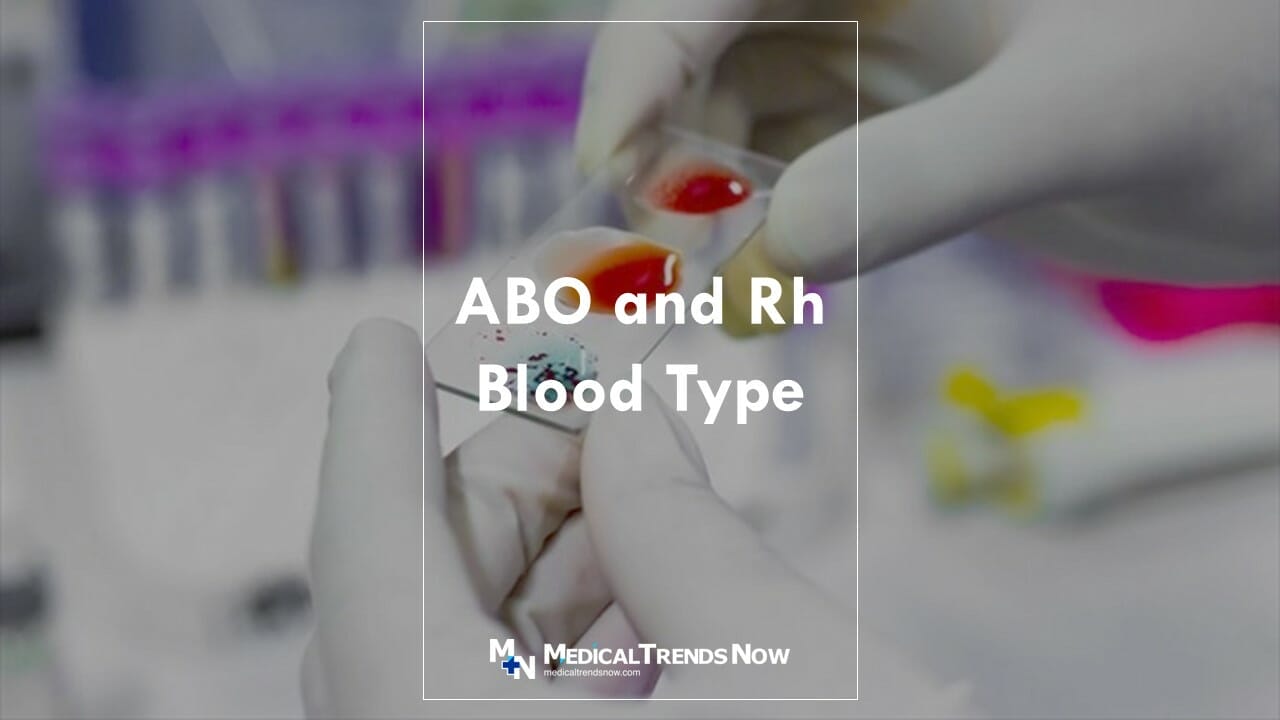Table of Contents
If you are looking for the truth about your blood type, you have come to the right place. In this article, we will take a look at all of the myths and facts surrounding ABO and Rh blood types.
What Is The Blood Type System?
There are 4 blood types in the world today. The blood type system is a way to group people together based on their blood chemistry. People with the same blood type share similar genes and are, therefore, likely to have similar health risks. This system is useful for diagnosing and treating diseases, especially if there is no other way to know for sure which person needs which treatment.
How Are Blood Types Determined?
The human blood type is determined by the presence of antibodies in the blood. A person’s blood type is identified by taking a sample of their blood and looking for the presence of specific antibodies. There are three types of blood: A, B, and O. Most people have one of these three types, but about one in twenty people has a fourth type, called ABO. The presence of an ABO antibody indicates that the person’s immune system has reacted against their own red blood cells and made special antibodies to fight them.
What are the ABO Blood Types?
There are four blood types: O, A, B, and AB. People have these blood types because the proteins in their red blood cells contain differences in certain amino acids. These differences determine which antigens the body produces when it tries to fight off infection. Almost everyone is type A or B. About 1% of the population has an AB blood type.
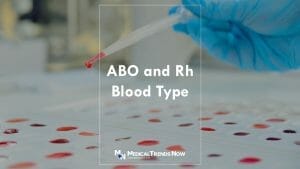
Which Blood Types Are Most Common?
ABO blood types are the most common in the world. There are four ABO blood types: A, B, AB, and O. Out of all people on Earth, approximately 98.7% have one of these four blood types. The remaining 1.3% have a blood type that is not found in humans (such as ABH or combinations thereof).
ABO blood types are important because they can influence how a person’s body reacts to certain medications and health problems. For example, people with type O blood may be more likely to develop allergies than people with other ABO blood types. Additionally, people who have ABH (an uncommon type of ABO) may be at an increased risk for some serious medical conditions, including heart disease and stroke.
What Are The Different Blood Groups?
There are a total of twenty-four blood groups, each with its own unique set of proteins. This allows for different medicines to be specifically designed for individuals with the same blood group.
Some key facts about blood types:
- There are four main blood types: A, B, AB, and O.
- Each person has a different combination of these four blood types. For example, I have type A blood and so do my siblings.
- Other people may have type B or AB blood.
- Most people have some type of O blood because it is the most common in the population.
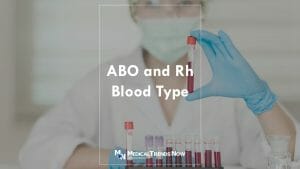
Why Do People Have Different Blood Types?
There are four blood types: A, B, AB, and O. Each person has a different type based on the proteins in their blood. The different types of blood can cause problems if they mix together, so people are usually assigned to one of the four types when they’re born.
People with certain blood types are at risk for certain diseases. For example, people with type O blood are especially susceptible to infections because their immune system doesn’t work as well as those with other blood types. People who have type A or B blood can also suffer from serious medical conditions if they don’t get regular checkups.
What Are The Negative Effects Of Having An Abnormal Blood Type?
There are a few negative effects that can come from having an abnormal blood type. Some people with AB blood type have a higher risk of developing certain types of cancers, including leukemia and lymphoma, due to their inability to properly fight off infections. Those with O blood type have a higher risk of experiencing severe allergic reactions, as their immune systems are not as strong as those with other blood types. Additionally, those with rarer blood types – such as ABO – may experience more health problems than others simply because there is not a lot of research available on the subject. It is important to keep these things in mind if you find out you have an abnormal blood type so that you can take proper precautions to protect your health.
How To Tell If You Have An Abnormal Blood Type?
An abnormal blood type is any blood type that is not typically found in the population. There are over sixty different blood types, and each person has a specific one. Abnormal blood types can be caused by a variety of factors, including inherited genes, medical conditions, and environmental toxins. If you are concerned about your blood type, you should talk to your doctor about it.
Why Do Doctors Require ABO Laboratory Tests?
ABO blood typing is a laboratory test that physicians and other health professionals often request from patients. The ABO blood type helps identify the patient’s blood type and can help doctors diagnose certain medical conditions. For example, someone with an ABO blood type of AB might be at a higher risk for developing hemolytic anemia, a condition in which the body destroys red blood cells. In addition, people with certain ABO blood types may require different treatments or precautions when it comes to certain diseases or injuries.
What Kind Of Specimen Is Needed for ABO Laboratory Test?
ABO blood type is determined by the presence of antibodies in your blood that is specific to A, B, or O. The most common type is AB, accounting for about 60% of all blood types. To determine your ABO blood type, a sample of your blood will need to be sent to a lab for testing.
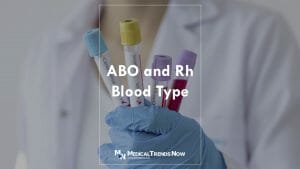
What Type of Equipment Is Used to Perform an ABO Laboratory Test?
There are a few different types of equipment that are used to perform an ABO laboratory test. The most common type of equipment is a blood draw device. This device uses a needle to take a blood sample from the person who is being tested. Other types of equipment that are used in ABO testing include an agglutination reagent and a lysing agent.
FAQs
Is the ABO Laboratory test a painful test?
There is some debate about the pain level of the ABO Laboratory test. Some people claim that it is relatively painless, while others report that it can be quite uncomfortable. It is generally thought to be less painful than some of the other laboratory tests, but it is still a test that may require some discomfort.
How long will the laboratory test be?
The laboratory test will likely take around two hours.
What can I expect during the ABO laboratory test?
The ABO blood type is a system of classification for human blood based on the presence or absence of antigens on the red blood cells. There are six types: A, B, AB, O, ABO, and OAB. The laboratory test determines your blood type by analyzing the antibodies present in your serum.
What can I expect after the ABO laboratory test?
After an ABO blood type test, results will be available in about an hour. Depending on the particular lab, the results may be displayed on a computer screen or printed out. Your doctor or nurse can then use the information to better care for you.
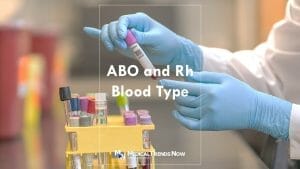
What should I know prior to my ABO laboratory test?
If you are considering having your blood type determined by a laboratory, there are a few things you should know. First, your blood type is determined by the presence or absence of antibodies in your blood. Antibodies are proteins that the body produces in response to foreign objects (like bacteria or viruses) or diseases. There are three main types of blood: A, B, and AB. About 60% of the world’s population has one of these three types. For those who don’t know their blood type, a simple online test can determine it for you.
The second thing to know is that not all laboratories offer all three types of tests. If you plan on having your blood type determined by a laboratory, make sure to inquire about which test is offered and which group your blood belongs to (A, B, or AB). Some laboratories only offer tests for groups A and B. Other laboratories may offer both groups A and group B tests as well as the AB test. The important thing to remember is that no matter which lab you choose, you will receive an accurate determination of your blood type based on the antibodies present in your bloodstream.
Do I need to fast before my ABO test?
There are many factors that can influence the results of a blood test by hematologists, so it’s always best to consult with your doctor before taking any action based on the results. In general, however, most people don’t need to fast before their ABO blood type test.
Where are my specimens sent for testing?
There are a few places where blood specimens can be sent for testing. The most common destination is a laboratory that specializes in the analysis of blood and blood products. However, laboratories can also test blood specimens for a variety of other reasons, such as detecting infections or cancer.
When selecting a laboratory to test your blood specimens, it is important to consider the specific needs of the laboratory. For example, some laboratories may only be able to test for certain types of infections or cancer. Additionally, some laboratories may have a better track record with specific types of tests than others. It is always best to consult with the laboratory prior to sending any blood specimens for testing.
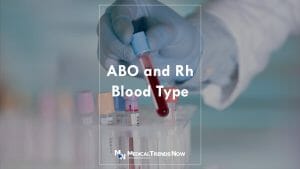
What kind of result should I expect after the ABO laboratory test?
ABO blood type is one of the most important factors in determining an individual’s compatibility with others. It determines the types of antibodies a person produces, which can determine whether they are susceptible to certain diseases. After taking an ABO laboratory test, you would typically expect to receive a result indicating your blood type. Knowing your blood type can help you avoid potential health risks and make appropriate medical decisions.
Will I get any other tests after my ABO laboratory test?
If you are Rh-negative, you will need to have a transfusion in order to survive. You may also need to avoid certain foods, medications, and other activities that could cause harm if you are Rh-positive. If your ABO laboratory test is positive, you may want to consider getting an additional blood test, such as the Duffy blood group test or the Kellermann blood group test, in order to confirm your blood type.
How soon will I receive my ABO test results?
Blood type is determined by the presence of certain antigens on the red blood cells. These antigens are typically inherited from one’s parents. There are six blood types: A, B, AB, O, ABO, and Rh-. Blood type can be used to determine whether a person is susceptible to certain health problems. For example, people with Type A blood are more likely to develop asthma than people with other blood types.
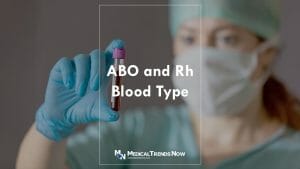
What are the most common blood types?
There are four common blood types: A, B, AB, and O. Type A is the most common, followed by type O. Type B is the least common. AB is the second most rare.
What is the rarest blood type?
The rarest blood type is AB negative. According to the American Red Cross, this blood type is only found in about 1% of the population. A person with AB- blood can only receive transfusions from another AB- donor. This blood type is often called the “universal recipient” because it can receive transfusions from any other blood type. AB- blood is also the most in-demand blood type for transfusions.
How blood typing is done?
Every person has a different blood type, which is determined by the presence or absence of certain antigens – proteins on the surface of red blood cells. In order to determine someone’s blood type, a sample of their blood is mixed with a solution that contains antibodies. If the person’s blood contains the antigen, it will clump together.
What is a blood transfusion?
A blood transfusion is a medical procedure where blood is taken from one person and transferred to another person. The purpose of a blood transfusion is to replace missing blood or to treat a medical condition. Blood transfusions can be life-saving procedures, but there are also risks involved.
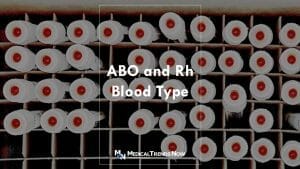
What is Rh positive
If you have ever gotten a blood transfusion, there is a chance that you received blood that was Rh positive. But what does that mean? Simply put, it means that your blood contains an antigen known as the Rh factor. If you do not have this antigen, you are said to be Rh negative.
What are positive blood and negative blood?
In order to understand positive blood and negative blood, one must first understand what blood is. Blood is a tissue that contains red blood cells, white blood cells, and platelets. These cells are responsible for carrying oxygen and nutrients to the body’s tissues and organs. Red blood cells are the most abundant type of cell in the blood, and they contain a protein called hemoglobin, which gives blood its red color. White blood cells are responsible for fighting infection and disease.
What is ab positive and ab negative blood?
AB positive and AB negative blood are the two types of blood that are present in the human body. AB positive blood is the most common type of blood, while AB negative blood is the rarest type of blood. Both types of blood have different characteristics and functions in the body.
What is b antigen?
B antigen is a protein found on the surface of red blood cells. It is one of the proteins that make up the ABO blood group system. People with type A blood have the A antigen on their red blood cells, type B has the B antigen, and type AB has both antigens. Type O blood has neither antigen. The B antigen is also known as the H antigen.
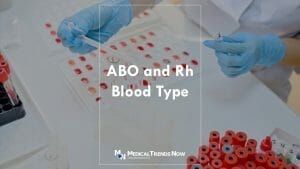
Conclusion: ABO Blood Group System and Rh Factor
So, there you have it – the definitive guide on what is known about blood types. We hope that this has helped you understand more about this fascinating subject.
Disclaimer
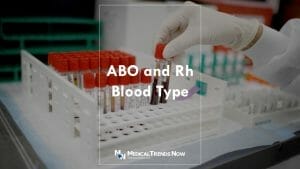
Sources: ABO And Rh Blood Type
Why is Type AB Blood so Important – American Red Cross
ABO group antigens, Blood groups, ABO system – NHS
Blood group B positive blood type – NHS Blood Donation
Association of ABO and Rh blood groups with type 2 diabetes – Pubmed NCBI
Blood Group Types (for Teens) – Nemours KidsHealth
Type AB Negative – Red Cross Blood Donation
Rh factor blood test (if your baby is Rh positive) – Mayo Clinic

